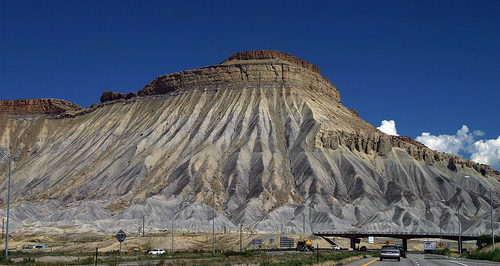
A recent report from Ceres details the risks to investors of the unproven extraction technologies of oil shale and coal-to-liquid fuels, according to the SocialFunds.com press release. The report, entitled Investor Risks from Development of Oil Shale and Coal-to-Liquids, details a number of risks with both of these technologies that are not new, but are considered “still in the early stages of development,” according to the report. Read more about the risks and what investors can do.
Among the risks reported are:
- water constraints, especially for oil shale development in water-stressed western states.
- current and potential regulatory efforts to mitigate the effects of climate change are risks to both technologies which are carbon-intensive.
- the price of oil, as the development of both technologies is contingent upon high oil prices.
- public opposition to unproven technologies.
The report recommends the following investor actions:
- engage with companies to further understand the risks that companies are assuming and how they are mitigating those risks.
- evaluate potential risks from state and municipal bonds in their fixed income portfolios.
- advocate for such policies as a national price on carbon and a low-carbon fuel standard.
For more information on Investor risks from unproven fuel extraction technologies read the full report here: Investor Risks from Development of Oil Shale and Coal-to-Liquids.
Image Credit: dsearls via Flickr under CC license.




lots of $$$$$ to be made in the new technologies, cut out the middle eastern oil barrons
Australia is becoming increasingly reliant on the importation of liquid fuels. Recent estimates suggest that Australia will be importing over 60% of its oil requirements before the end of this decade. The cost will be borne by Australian motorists. A solution to this problem of ever rising petrol costs has been trialled successfully by Linc Energy (ASX: LYC) who have shown that the combination of two well known processes Underground Coal Gasification (UCG) and Gas to Liquids technology (GTL) can convert one ton of coal to around 1.7 barrels of oil for around $30. Linc Energy has around .5b tons of tons of UCG suitable coal in the dry and arid Arckaringa, St Vincent and Walloway Basins in South Australia. Another quite small company (by market cap) Central Petroleum (ASX: CTP) has around 1 trillion tons of UCG suitable coal in the Perdika basin, one of the most uninhabited, non-fertile and arid regions of Australia. Whilst I have some sympathy towards the argument that UCG-GTL processes shouldn’t be used in populated regions Australia should embrace our emerging UCG-GTL industry to ensure our liquid fuels supply. Of great interest is that these UCG-GTL products are markedly free of small particulates and the process itself is much greener than the current methods of coal mining. For those that would like a greater understanding of the issues involved, with a particular emphasis on Australia please visit http://www.UCG-GTL.com.
The extraction of gas from shale is still open to major environmental concerns and one company Australian Worldwide Energy is likely to be at the forefront of this battle between the supply of cheap gas and the potential pollution of a vital aquifer. As AWE has found a massive shale deposit that is on top of Perth’s major underground water supply. A situation made much worse by Perth having a major drought over the last decade and increasing reliance on under-ground water supplies.